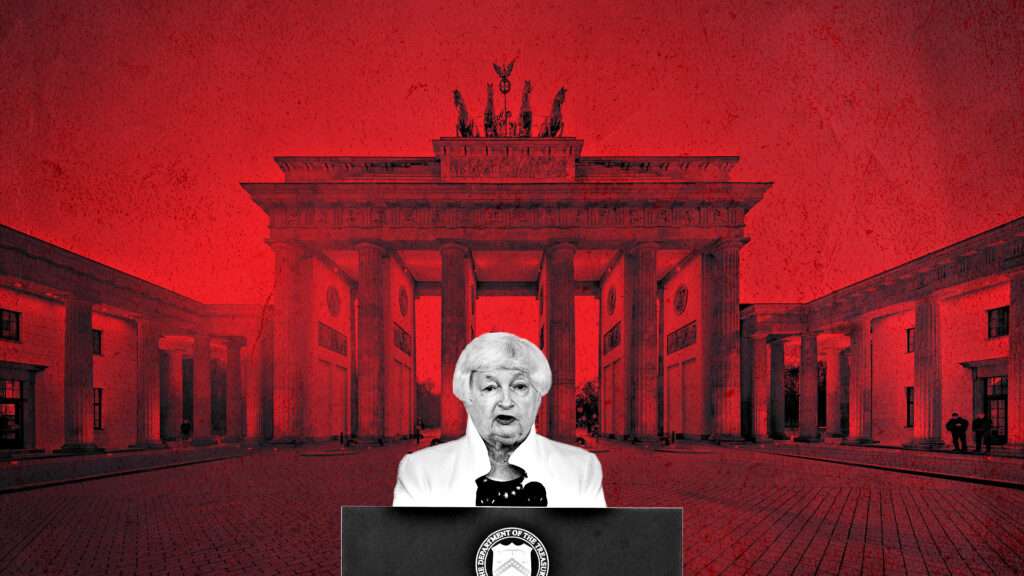
Before the start of the G7 Finance Ministers and Central Bank Governors’ Meeting recently, United States Treasury Secretary Janet Yellen said that America and Europe must form a clear and unified strategy against China’s “industrial overcapacity” and that “market-driven countries” should erect a “wall of opposition” against China-led industrial policy. Prior to Yellen’s remarks, the U.S. announced an additional tariff on Chinese electric vehicles and other products.
The purported “industrial overcapacity” Yellen speaks of is an American-made narrative meant to slander Chinese industrial policy and defies both common sense and objective fact. According to Yellen, China’s industrial capacity far exceeds domestic demand, which may lead to large amounts of low-price exports, thereby harming American factories and workers, among those in other nations. If you can say that a large amount of exports counts as industrial overcapacity, then wouldn’t the advantageous export products of nearly all countries in the world, including America, not also be industrial overcapacity? Why can America sell its Boeing airplanes and high-end chips to the world, but China cannot export electric vehicles?
As an economist, Yellen’s wanton hyping of China’s “industrial overcapacity” violates economic principles and demonstrates her strong political motives. Yellen stressed that the U.S. did not seek “decoupling” with China when she visited not long ago. For her to turn around and drag the EU into creating a so-called unified strategy for erecting a “wall of opposition” against Chinese industrial policy fully exposes the duplicitous nature of the United States and its sinister intentions to suppress China’s advantageous industries. Anyone with a discerning eye can see that what the United States is selling under the guise of “overcapacity” is just a replica of “China threat theory”; it is pushing outdated protectionism for the sake of protecting America’s own selfish interests.
America failed to gain full agreement from its allies when it leveraged so-called Chinese industrial overcapacity as a reason to assemble a “protectionist alliance” meant to suppress China. European Commission President Ursula von der Leyen said the EU will not follow in the footsteps of America in levying taxes on China and will take a different approach from Washington’s “blanket tariffs.” German Chancellor Olaf Scholz points out that of the electric vehicles imported from China, half are from Western manufacturers which themselves manufacture in China and then export to Europe and that European and U.S. manufacturers also sell large amounts of Western manufactured vehicles to China. French Finance Minister Bruno Le Maire emphasized that China is an economic partner and engaging in a Chinese trade war does not align with any country’s interests. This fully demonstrates that Yellen’s call for uniting to suppress China comes at the expense of the real interests of U.S. allies and is destined to be unpopular.
China’s openness and development has brought the world opportunities, not risks. China’s new energy industry has attained real skills within open competition, not only enriching global supply and slowing the pressure of global inflation, but also making a huge contribution to combating climate change and the green transformation. Protectionism won’t solve America’s problems. Building walls and barriers against China will only hold back the States’ own future development and opportunity. The U.S. should immediately cease its suppression of China’s new energy and other industries in the name of “industrial overcapacity,” return to the correct course of economic globalization, and strive to enlarge the “pie” of mutual cooperation so that the fruits of development can provide greater and more equitable benefit to all countries, including America.

Leave a Reply
You must be logged in to post a comment.